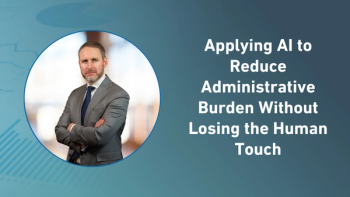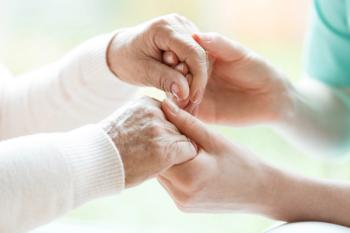
Africa Emerges as Digital Health Proving Ground
Andaman7 and Afrisda, Inc. sign partnership agreement to support digital health implementation in Africa.
With Africa emerging as the new breeding ground for innovative digital health solutions,1 Belgian American ehealth company
The COVID-19 pandemic has highlighted the need for global health solutions to benefit all nations. However, with Africa’s vast population bearing the world’s greatest disease incidence and significant healthcare shortages, the challenge and opportunity to increase the use of digital health solutions to benefit local populations, as well as increase real world evidence and data related to diverse populations for global therapy developments, makes this a key area on which to focus.
Digital technologies have already formed a vital part of the COVID-19 response worldwide, offering case identification, contact tracing and evaluation. These rapid responses leverage billions of mobile phones, online datasets, low-cost computing resources and advances in machine learning and natural language processing. However, more needs to be done, not only to address existing challenges but to maintain momentum beyond the pandemic.
Dr Djo Matangwa, co-founder and CEO of Afrisda Inc, explains: “We seek to raise awareness around the future of digital health in Africa to encourage donors and investors to support African governments and organizations, as well as private sectors working in Africa, as well as support African health authorities to design laws and policies that will strengthen Africa's health system as a key element in innovation and technology adoption.”
Vincent Keunen, founder and CEO of Andaman7, said, “COVID-19 has highlighted potential digital health roadblocks but this pressure on digitalization should be seen as an opportunity – not just for governments, but for innovators, donors and local organizations to provide essential health services that are affordable, reliable and tailored to local needs. There is already precedent for this. In telecommunications, many African countries skipped the classic landline step and went straight from no communications to mobile communications. The same was seen in the banking industry.”
Keunen also noted that his company’s technology, with solutions that work offline, can help in places where there is limited electricity and internet, as is common in Africa. “Someone could travel to a big city to charge their phone and connect to the internet and then use the app offline for a week. Looking beyond the patient, there is a huge opportunity to harness the power of decentralized trials, involving previously under-served demographics to improve research and treatments for all.”
Afrisda will host a webinar roundtable “Beyond COVID-19: The Future of Digital Health in Africa” on Tuesday, June 29, at 1pm ET. [7pm CET; 6pm BST (5pm GMT)]. ToThe webinar panel will feature:
- Dr. Djo Matangwa, Co-founder and CEO Afrisda Inc. Toronto, Canada
- Guest Speaker, Her Excellency Kilumba Nkulu, Vice-Minister of Public Health, DRC
- Vincent Keunen, Founder and CEO Andaman7, Liege, Belgium
- Daniel Messer, Vice President and Chief Information Officer for Digital Health & Technical Integration Population Services International, Washington DC, USA
- Rosine G. Assamoi, Co-founder and Executive Vice President Afrisda Inc. Toronto, Canada
- Eric Mutonj, Consultant ANICiis, Ministry of Health DRC
- Dr. Amer Sattar, Director and Consultant in Public Health, Guinea Conakry
- Dr. Mamello Muhanuuzi, Group Head of Medical Services & Quality Assurance, International Medical Group, Uganda
- Jan Kennis, Digital for Development Lead Expert, Enabel, Antwerp, Belgium
Please go here to register:
Reference
Newsletter
Stay current in clinical research with Applied Clinical Trials, providing expert insights, regulatory updates, and practical strategies for successful clinical trial design and execution.




